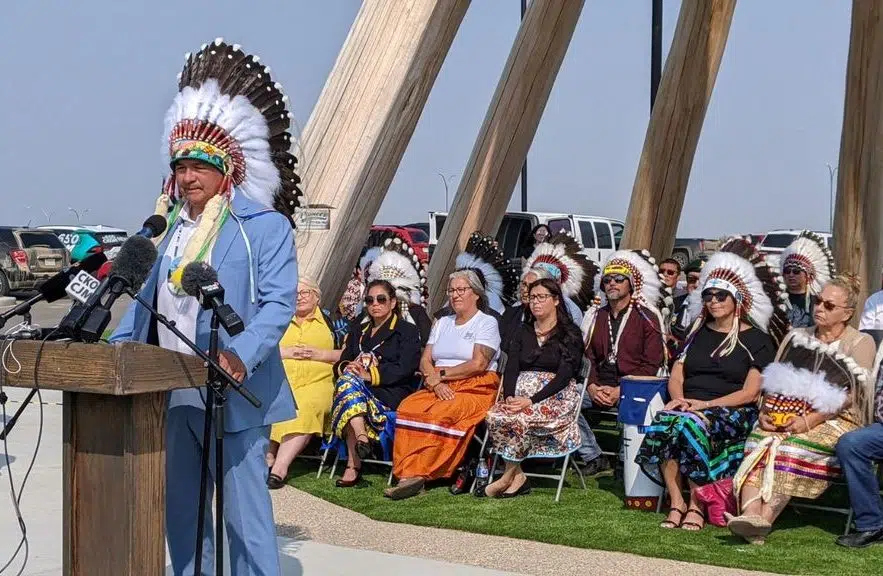Saskatchewan’s chiefs are calling on the provincial and federal governments to rescind the Natural Resources Transfer Agreement (NRTA) that was signed in 1930.
On Tuesday, dozens of chiefs gathered to voice their displeasure over how they’re unfairly treated in the NRTA.
The chiefs said they want more money from the natural resources that the provincial and federal governments get from First Nations land and that the First Nations don’t feel they’re getting a fair shake.
As a result of their displeasure, Saskatchewan’s chiefs are in the process of filing a statement of claim against the provincial and federal governments against the NRTA.
“Our treaties were signed long before anyone arrived on these lands,” said Chief Bobby Cameron of the Federation of Sovereign Indigenous Nations.
“Back in those days, many of our First Nations only spoke one language. They were trying to interpret it and some of them were saying they couldn’t understand the white man’s words. For them to be misinformed, tricked or lied to, that’s the whole basis of this (statement of claim).
“(Governments) basically failed in their duty to consult; they didn’t inform properly. Had they informed the chiefs of the day and the leadership of the day, they would’ve never agreed to the 1930 NRTA. Never.”
The plan is eventually to take the governments to court and Cameron says the claim is the foundation of their argument.
“We understand it’s going to take some time, but this is the foundation to finally secure what’s rightfully ours,” Cameron explained.
Cameron said the request isn’t asking for all of the money out there, but rather for a fair deal that could work for everyone.
“You heard some of the chiefs: We don’t want everything, we just want a share,” he stated. “There’s more than enough billions to go around in this region – in Manitoba and Alberta (as well) — for First Nations to invest in housing or whatever each nation prioritizes.”
Cameron added the chiefs’ ask is no different than farmers asking for insurance when they have a bad season because of drought.
When asked why now is the right time to challenge an agreement from 1930, Cameron said it had to do with a couple of things.
“There’s a lot of urgency as of late (with) The Saskatchewan First Act and more recently (the governments’) consultation policy framework. Those documents have not been informed to us,” he said.
“Don McMorris (Saskatchewan’s minister responsible for First Nations, Métis and Northern Affairs) called me the night before this consultation policy framework was due to make an announcement. That’s not respectful or communication. That’s not hardly a square centimetre of reconciliation when Don and Scott (Moe) has my cell number.
“Had they reached out to myself properly and said, ‘What do you think of this consultation policy framework?’ I’d say, ‘We need to put together a knowledge keepers task team full of our Elders and chiefs. That could guide you and make consultations on this policy framework’ – but it went on and on and on,” Cameron added. “And then I get a call the night before.
“It’s like if you got a call from your brother and sister saying they’re getting married the next day. It’s communication and inclusion. That’s not much to ask for.”
No specific information was mentioned about how much specifically Saskatchewan’s chiefs were looking for in the statement of claim.
Chiefs in Manitoba and Alberta were also encouraged to launch their own lawsuits against their governments.
Cameron said the lawsuit being launched will be a constitutional battle.







